- Sample Manuelito Barrios
- Sample Sapo
- Sample El Camaron
- Sample Fiestas De Mi Tierra
- Sample Marionetta
- Sample El Loro
- Sample Sombrerito
New York Colombian Band
This New York Colombian Band performs concerts and workshops with traditional instruments from the African Diaspora in Colombia, as well as indigenous and European. All of which are blended together in the traditional musical styles that developed throughout the colonial era, and continue to evolve. They have the range of versatility to perform from a quintet format, for reduced space events; up to a 10-piece band format for large events.
New York Colombian Band creation
This New York Colombian Band was created in the summer of 2000 with a group of musicians of caliber who share an enthusiasm for investigating, performing and advancing musical expressions emanating from the mix of African, Native Indian, and European cultural contributions in the Americas.
New York Colombian Band styles
This New York Colombian Band musical work and development is shaped by traditional styles that emanate from the popular coastal traditions in which music is just one of the various artistic manifestations. The group takes coastal music as a departing point and source of material not only because of the musical background of some of the members, but because coastal traditions in Colombia, as in other regions of the Caribbean are inexhaustible fountains of artistic traditions. In Colombia having two different coastal regions, Atlantic and Pacific, which have led to distinct cultural traditions, doubles this situation.
This New York Colombian Band approach to music is investigative. However, from the styles, genres, rhythms, and melodies explored, the group is inspired to create new arrangements and even entirely new compositions, which although traditional influenced, may have eclectic characteristics in texture, harmony or rhythm. This aspect of this ensemble can be seen as the result of being a New York born and based group, where interactions and continuous contact with musicians from different places around the world generates new possibilities.
Since its beginnings, this New York Colombian Band has been working from a handful of traditional kinds styles present in Colombia. Some of these musical styles are:
In the Atlantic Coast
Gaitas y Tambores
From the Atlantic coast, this style is performed with pre-Columbian woodwind native indigenous instruments along with the maraca. In this powerful musical style developed and cultivated throughout the colonial and post-colonial eras until present, drums from the African Diaspora blend as two peas in a pot with the gaitas and their unique contour of melodies. A given piece can be instrumental or sung in Spanish. When it is sung, it is said that this style constitutes a perfect artistic expression of the tri-ethnicity that characterizes general population in the region.
Banda ‘Pelayera’
Also from the Colombian Caribbean region, this style is performed with the same instruments present in any traditional marching band except that the percussion section contains only one of each. However, this style has plenty of freedom in terms of the brass or woodwind instruments that can be used for a given performance. The term “pelayera” alludes to San Pelayo, a small town in the Atlantic coast region home of a famous and popular annual band festival. ‘Música Pelayera’ denotes the above-mentioned instrumentation along with the body of repertoire, which a band from the region usually plays, or its musical characteristics and nuances.
Terapia or Champeta
From the Caribbean coast, ‘la musica champeta’ refers to the most recent wave of popular influence to be embraced by the common folk in the Colombian Caribbean. Even though present in the Caribbean throughout the century, this musical style was propelled to unprecedented heights by popular music movements emanating from Africa in the immediate post revolution/independence years in the 1960’s, particularly from the Congo area. As a result, ‘champeta’ is more easily compared and associated with Congolese ‘zoukous’. However, the term champeta as it is used in Colombia may include or take various characteristics of similar styles such as calypso, socca, samba, bomba, or zoukus from other regions of the Caribbean or even Brazil which share Congo elements.
In the Pacific Coast
Conjunto de marimba
This musical tradition takes its name from one of the rhythms played by this type of traditional ensembles found in numerous small villages and towns along Colombia’s Pacific coast and in Ecuador. This New York Colombian Band feature the marimba as the main melodic and harmonic foundation, singing, and drums called bombos and cununos. Other genres within the traditions of these types of ensembles are Currulao, bunde, arrullo, aguabajo, and juga.
Chirimía
This musical style is from the Pacific coast, and it’s instrumentation is the same as in the ‘banda Pelayera’. There are however, great differences between these styles, but those are entirely and strictly musical. The differences are present in nuances, rhythms, melodic contour, and phrasing.

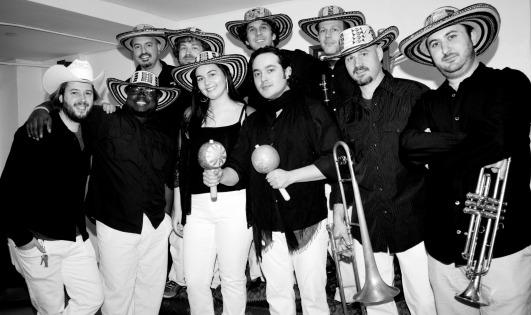
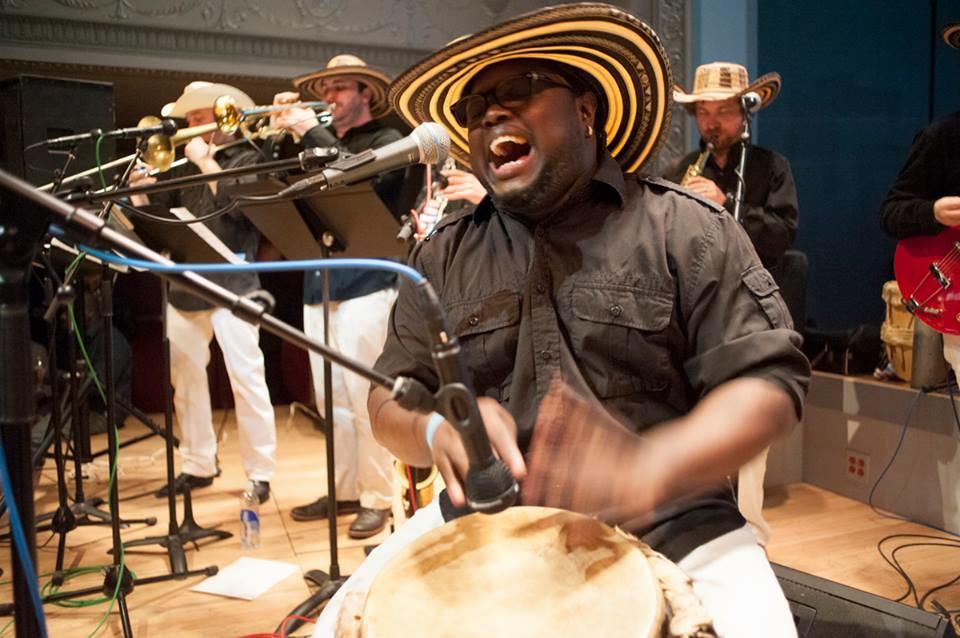
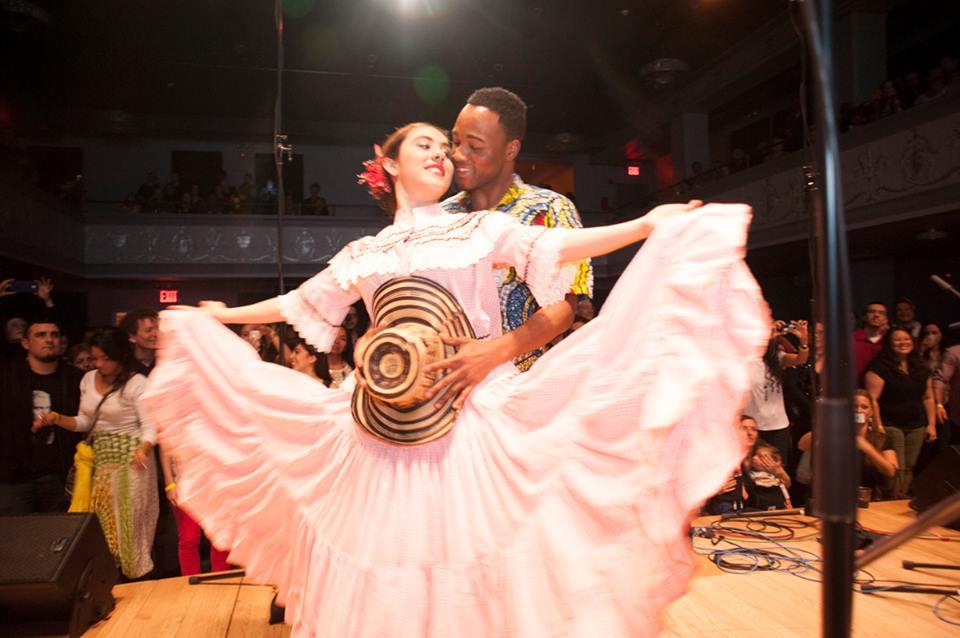
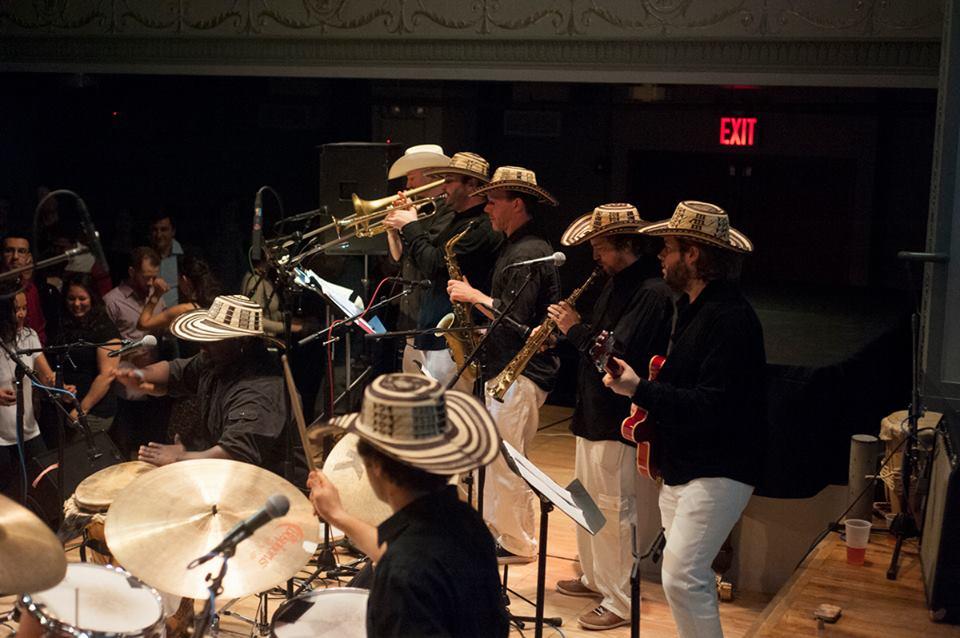
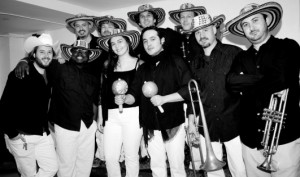
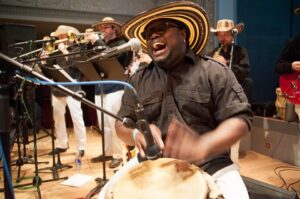
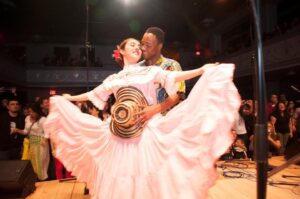
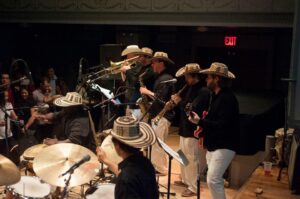
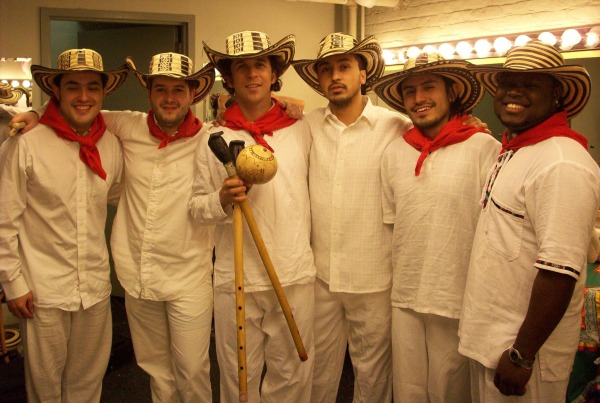
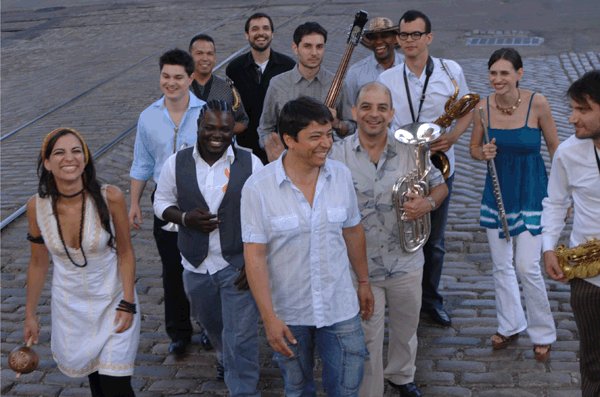
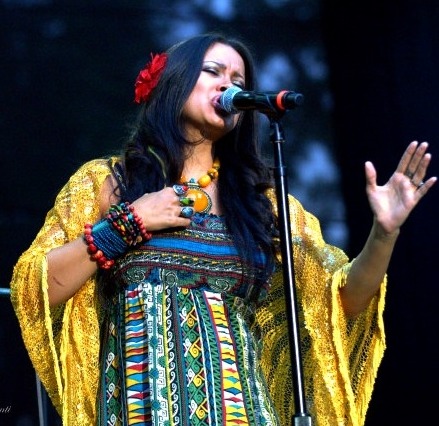
“These are a bunch of young guys from Colombia that are now living in Brooklyn – from the first time I heard them, I continue to think they’re one of the hardest rocking bands in New York, period.” – Marc Ribot for Billboard.com
“The big band grabbed the audience from the outset, moving hearts – and, more importantly, feet – throughout the night. Layers of vocals, bongos, snares, brass and bass filled Webster Hall with joy. There was a lot of dancing and smiling, to say the least.” – Bob Boilen, NPR Music
“The ensemble’s artistry and verve energized the inauguration of this year’s Latin American and Caribbean programming at Princeton, and set a new standard for PLAS cultural events.” – Deborah Yashar, Director, Program in Latin American Studies, Princeton University